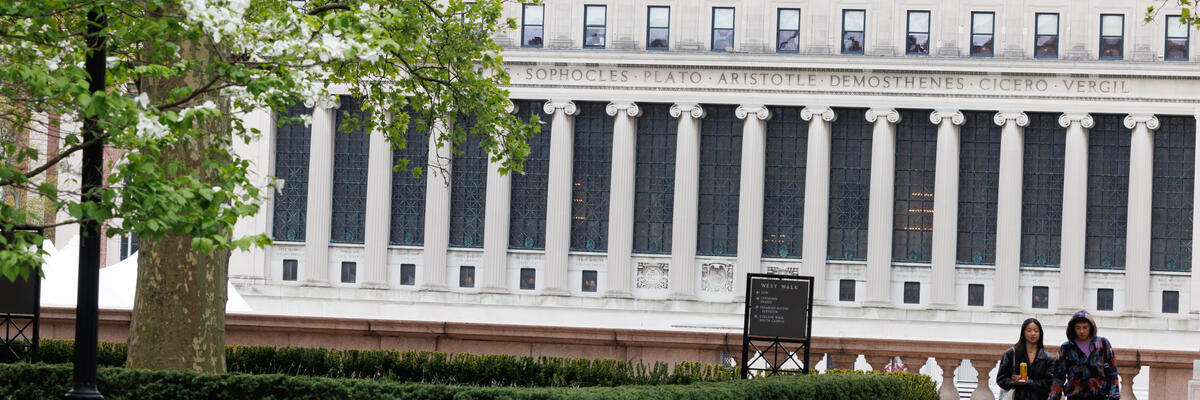
Macro-Financial Policymaking in Emerging Markets
April 22-26, 2024
The Macro-Financial Policymaking in Emerging Markets program, organized in partnership with the Inter-American Development Bank (IDB), is designed for the experienced global policymaker from Emerging Market governments, as well as international financial institutions. It covers macro-financial analytical issues and provides quantitative tools such as growth vulnerability to external factors, international liquidity and vulnerability to financial crises, fiscal vulnerability to Sudden Stops, and banking stress tests. The course sessions will be led by a group of experts in the field from Columbia University; the Inter-American Development Bank; and other institutions, bringing together the appropriate focus, theory, and best-practice methods in training.
| April 22-26, 2024 | ||
| Time: (EST) 9:30 a.m. – 5:30 p.m. | Format: In-person | Tuition: $5,900 |
| Application deadline: April 19 | Location: Columbia University | Payment deadline: April 19 |
| Certificate of Participation: Macro-Financial Policymaking in Emerging Markets | ||
Designed for the Experienced Global Policymaker
In Partnership with The Inter-American Development Bank. This program is designed for the experienced global policymaker from Emerging Market governments as well as international financial institutions.
Who Should Attend
This program is designed for the experienced global policymaker from Emerging Market governments as well as international financial institutions.
Tuition
$5,900
The program will provide tuition waivers for up to 15 policymakers from Latin American and the Caribbean countries. Tuition waivers are available for applicants who are:
- A citizen of a Latin American or Caribbean country
- A public servant in one of the main financial institutions of his/her country, such as a Ministry of Finance, Department of Debt Management, Central Bank, or Ministry of Economic Development.
- Responsible for policy-making in his/her institution, particularly in contributing to the design and/or implementation of macroeconomic and financial policies, and/or in debt and macro-financial analysis.
- In a position to potentially incorporate the knowledge acquired during the course in the execution of his/her duties.
- Strong economics background.
- The applicant should have clearance from his/her institution regarding its willingness to finance his/her related travel and accommodation expenses.
Admissions Criteria and Process
The program uses a rolling admissions process, which means applications are reviewed — and decisions rendered — as they are received. It is always advantageous for you to submit your application as early as possible. However, the decision on tuition waivers for eligible applicants (policymakers from Latin American and the Caribbean) will only be posted within a week after the application deadline on March 24, 2024.
Professional Benefits
- Earn a Columbia University awarded Certification of Participation in the Macro-Financial Policymaking in Emerging Markets program
- Participate in customized education designed by expert faculty and practitioners.
- Understand the forces of a crisis that affects economic performance.
- Implement strategies for managing difficult challenges associated to financial crises.
- Improve the ability to make critical decisions under stressful conditions.
- Develop a lasting network of leaders from around the country and the world.
- Access a large collection of faculty-selected readings on key macro-financial topics.
Curriculum

Learning Objectives
Russia’s war against Ukraine, the COVID-19 pandemic, and other recent geopolitical events have impacted the global economy in myriad ways and are a stark reminder of the challenges the world’s interconnectedness poses to policymakers charged with steering the macroeconomic fortunes of their countries.
With these challenges in mind, Columbia University School of International and Public Affairs (SIPA) and the Inter-American Development Bank (IDB) have developed a course on International Financial Issues in Emerging Markets.
The goal of this executive training program is to help world practitioners design and implement macroeconomic and financial policies in a cohesive and comprehensive fashion based on state-of-the-art knowledge of emerging markets. This program is designed for the experienced global policymaker from emerging market governments as well as international financial institutions and investment bankers. It covers macro-financial analytical issues and provides quantitative tools such as growth vulnerability to external factors, international liquidity and vulnerability to financial crises, fiscal vulnerability to sudden stops and banking stress tests.
The course sessions will be led by a group of experts in the field from Columbia University, IDB, and other institutions, bringing together the appropriate focus, theory, and best-practice methods in training.
Key Topics/Areas of Concentration
- The international environment, the financial sector, and output outcomes
- External factors, international liquidity, and vulnerability to financial crises
- International shocks, monetary and exchange rate responses, and international reserve management
- Monetary policy responses to sudden stops in capital flows
- Managing international capital flows
- Global imbalances, external adjustment, and valuation effects
- New approaches to monetary economics
- Fiscal policy responses and debt sustainability analysis
- Banking crisis development and resolution
- Macroprudential regulation
- Country/regional perspectives on the US economy, China and Latin America and the Caribbean
- Crises and social protection
Program Format
Six highly integrated modules are presented in-person over one week on Columbia University’s campus.
Special Program Features
– Case Studies
– Practical applications
– Cutting-edge research
Modules
The course’s main modules are listed below. Guest lecturers will also address related trade and social sector challenges
Modules
-
Before the subprime crisis, the developing world benefited from extremely favorable external conditions (with some exceptions). Many believed that the consequent bonanza was the result of the success of domestic policies. Unfortunately, the global financial crisis and the associated output slowdown have made it clear that external factors continue to play a key role in output outcomes in emerging markets. But, more importantly, it made it clear that financial sector factors play a key role, making imperative a deep analysis of financial sector vulnerabilities.
-
Recent research suggests that a small set of external factors (US T-bond rates, high yield spreads, terms of trade and G-7 growth) account for a large share of Emerging Market (EM) GDP fluctuations. How do shocks to external factors affect EM GDP growth? How does that impact on public sector accounts? Considering debt maturity profiles and precarization of international financial market access conditions, what is the final effect of external factors and fiscal expenditure decisions on international liquidity and the chances of facing a financial crisis?
-
Based on country experiences, recent research suggests that high foreign-exchange-denominated debt and current account deficits have been major determinants of financial crisis and output performance in emerging economies during systemic sudden stops. What are the channels involved? What indicators are available to gauge the soundness of the financial and public sectors?
Are current monetary regimes adapted to confront swift changes in the global financial environment? Can emerging countries afford expansionary monetary and fiscal policies in times of crisis? How have recently developed, hard-to-trace financial instruments impacted global financial markets? Which policies can (or cannot) buffer the impact of such instruments? Is more regulation the solution? Is there room for a strategic use of international reserves to buffer the impact of shocks? How could international financial organizations help?
The experiences of Latin America with recoveries from systemic financial crises suggest that output collapses have been followed by credit-less recoveries to precrisis output levels in a relatively short span (the so-called phoenix miracles). What are the implications of these findings for the design of the policy response?
-
What have we learned from recent experiences of commodity price increases and inflation? Is inflation targeting the right regime to manage inflation? Under what conditions?
-
The developing world seems to have learned the debt lessons of the 1990s. Low public debt and longer maturities have been significantly achieved in many emerging markets. But debt risks have not disappeared. What are optimal debt management policies under changing conditions in international financing terms?
Today, private debt has become a source of fiscal risk for emerging markets since in several instances the government has acted as domestic lender of last resort. What have been the channels of private sector indebtedness? What are the links between public debt and inflation expectations?
-
Analytical discussions will be complemented by the following applications:
1. The impact of external factors on growth
2. A liquidity framework for the analysis of financial crisis vulnerability
3. Fiscal sustainability under Sudden Stops and under uncertainty
4. State of the art tools for public debt and external account’s sustainability analysis
5. Banking stress tests

Ready to Apply?
Schedule
| April 22, 2024 | ||
| 9:30 a.m. – 11:00 a.m. | Financial Crises: An Analytical Overview | Guillermo Calvo |
| 11:00 a.m. – 12:30 p.m. | External Factors, International Liquidity and Vulnerabilities to International Factors | Alejandro Izquierdo |
| 1:00 p.m. – 2:00 p.m. | Latin America’s Challenges | Eric Parrado |
| 2:15 p.m. – 3:45 p.m. | External Factors, International Liquidity and Vulnerabilities to International Factors (cont.) | Alejandro Izquierdo |
| April 23, 2024 | ||
| 9:30 a.m. – 12:30 p.m. | Monetary and Macroprudential Policies for Inflation and Financial Stability | Pierre-Richard Agénor |
| 2:00 p.m. – 5:00 p.m. | Banking Crises around the World | Gerard Caprio |
| April 24, 2024 | ||
| 9:30 a.m. – 12:30 p.m. | Debt and External Sustainability: Models and Applications for Emerging Markets | Eduardo Cavallo |
| 1:00 p.m. – 2:00 p.m. | The U.S. Economy | Vincent Reinhart |
| 2:15 p.m. – 5:15 p.m. | Global Imbalances, External Adjustment and Valuation Effects | Gian Maria Milesi-Ferretti |
| April 25, 2024 | ||
| 9:30 a.m. – 12:30 p.m. | Credit, Crises, and the Business Cycle | Alan Taylor |
| 1:00 p.m. – 2:00 p.m. | The Chinese Economy | Guillermo Mondino |
| 2:15 p.m. – 5:15 p.m. | Macroprudential Regulation | Liliana Rojas-Suarez |
| April 26, 2024 | ||
| 9:30 a.m. – 12:30 p.m. | Growth and Social Protection | Santiago Levy |
Program Faculty and Speakers
The Macro-Financial Policymaking in Emerging Markets program is taught by world-renowned academics, researchers, and practitioners from Columbia University; the Inter-American Development Bank, Williams College, the Center for Global Development, University of Manchester and Brookings, among others, bringing together the appropriate focus, theory, and best-practice methods in training. The program offers an opportunity for participants to expand their professional networks working with leading economists from corporations, academic and government institutions, foundations, and international agencies from around the world.

Gerard Caprio, PhD., is the William Brough Professor of Economics, Emeritus, Williams College
Read full bio »

Guillermo Calvo, PhD., is the Professor Emeritus of International and Public Affairs, Columbia University
Read full bio »
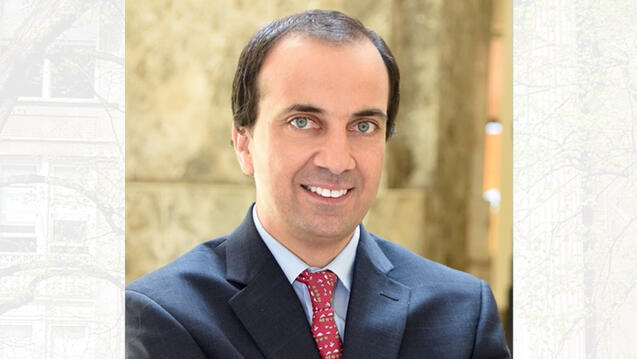
Eduardo Cavallo is a Principal Economist at the Research Department of the Inter-American Development Bank (IDB)
Read full bio »

Alejandro Izquierdo is the Principal Technical Leader of the Research Department of the Inter-American Development Bank (IDB), Inter-American Development Bank
Read full bio »
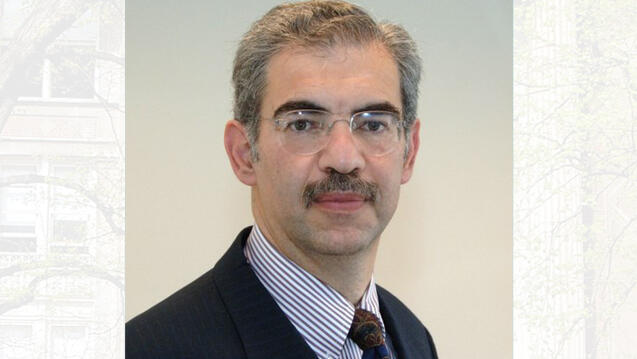
Santiago Levy, PhD., is the Nonresident Senior Fellow - Global Economy and Development Brookings Institution
Read full bio »

Gian Maria Milesi-Ferretti, PhD., is a Senior Fellow in Economic Studies at the The Hutchins Center on Fiscal and Monetary Policy Brookings Institution
Read full bio »

Guillermo Mondino is an Adjunct Professor of International and Public Affairs, Columbia University
Read full bio »
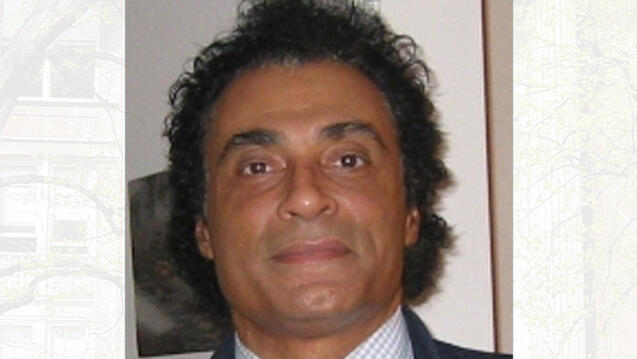
Pierre-Richard Agenor, MSc, PhD., is a Hallsworth Professor of Economics at the University of Manchester
Read full bio »
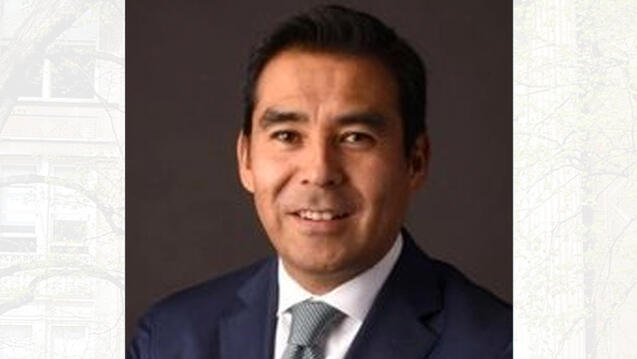
Eric Parrado is a Chief Economist and General Manager of the Research Department Inter-American Development Bank
Read full bio »

Vincent Reinhart is a Chief Economist & Macro Strategist BNY Mellon Asset Management
Read full bio »
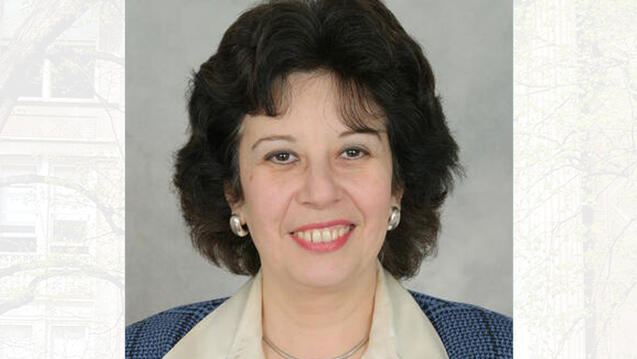
Liliana Rojas-Suarez is an Adjunct Professor of International and Public Affairs; Adjunct Senior Research Scholar, Columbia University
Read full bio »

Alan M. Taylor is the C. Bryan Cameron Chair in International Economics, University of California Davis; Distinguished Professor of Economics and Finance, Columbia University
Read full bio »
Quotes on Macro-Financial Policymaking in Emerging Markets program with IDB
“This was an incredible course. The topics were very interesting and useful for the Latin American context. It was a great experience to hear directly from leading researchers in their fields and to learn about state-of-the-art advances in macro-financial approaches and policy instruments.”
“It was a great opportunity to learn from the best and for networking as well. Thanks to the IDB and Columbia.”
“The program was extremely useful for my daily work and for my career in general. First-class lecturers. The topics covered were very interesting.”
“It is rather unique to have such distinguished, world-class researchers convene for a full week to discuss issues of utmost importance for policymakers in emerging economies.”
“Participating in this course was an extraordinary experience and I would recommend this course to anybody seriously interested in macro-financial policy making.”

Contact
The Picker Center for Executive Education
Laura McCreedy
Manager of Executive Education
[email protected]
Columbia University | SIPA
Picker Center for Executive Education
118th Street, Room 400
New York, NY 10027
P: +1 212-854-2710